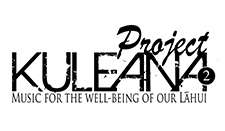Ka Na‘i Aupuni
Na Samuel K. Kamakaia
Mele lāhui are songs that celebrate the deep, lasting aloha we share for Hawai’i and our lāhui. They remind us of cherished places, honored ali’i, and the connections that bind us inseparably to one another as po’e i aloha i ka ‘āina—patriots who love our nation and home.
Over 300 mele lāhui were composed between the overthrow and the passage of the Newlands Resolution (1893-1898). Today, haku mele (composers) carry on these traditions inspiring our lāhui to remain steadfast and united.
One of the most well-known mele lāhui is Ka Na’i Aupuni. Composed by Samuel K. Kamakaia, Ka Na’i Aupuni first appeared in print in Ke Aloha Aina in 1897. Like tens of thousands of Hawaiian patriots, Kamakaia was a loyal subject of Lili’uokalani and the Hawaiian Kingdom. He served a leading role on the Komite o ka Lehulehu (Citizen’s Committee), which, together with the Hui Kālai’āina Hawai’i and the ‘Ahahui Hawai’i Aloha ‘āina, systematically and persistently protested the United States’ efforts to annex Hawai’i to the U.S.
Kamakaia used music to express his convictions—a natural choice as he was a member of the Bana Hawai’i (the Royal Hawaiian Band) where his leadership caught the attention of Kalākaua who honored Kamakaia with “ka medala dala a ka Moi Kalakaua” (the silver medal or Royal Order of Kalakaua).
In the first verse of Ka Na’i Aupuni, Kamakaia connects with audiences across the pae ‘āina by honoring the most revered ali’i of each mokupuni (island)—beloved leaders that our lāhui still hold in the highest esteem. Through this verse, Kamakaia activates in his listeners the profound, timeless connection of ‘āina, ali’i, and kānaka.
Kamakaia highlights in Ka Na’i Aupuni the words of one of the strongest 19th century ali’i, Kauikeaouli: “Ua mau ke ea o ka ‘āina i ka pono” (the sovereignty of the land is perpetuated through pono). He proclaimed these words upon the restoration of the sovereignty of the Hawaiian Kingdom on July 31, 1843, following the temporary seizure of the Kingdom by a renegade British Captain. This day came to be celebrated every year thereafter as Lā Ho’iho’i Ea (Sovereignty Restoration Day). Significantly, Kamakaia changes “Ua mau” from Kauikeaouli’s speech to “E mau,” signifying that the ea of the land shall continue to be preserved through pono.
Quoting the last words of Kamehameha, “E na’i wale nō ‘oukou i ku’u pono, ‘a’ole pau,” Kamakaia reminds the lāhui to continue to strive for the pono that Kamehameha achieved, a pono that is “‘a’ole pau,” enduring.
In honor of Kamehameha’s birthday in 1918, Jonah Kūhiō Kalaniana’ole delivered a speech that explained that the “pono” in Kamehameha’s famous quote refers to the bringing together of Hawai’i’s islands and people as one lāhui.
Such themes of unity are carried through in the last verse of the Ka Na’i Aupuni. Kamakaia encourages us to preserve the “ea o ka ‘āina” — “i hookahi kahi ka manao, i ho’okahi kahi pu’uwai, i ho’okahi kahi ke aloha” (together as one, one in mind; together as one, one in heart; together as one, one in love).
Watch and listen to Hawaiian artists perform Ka Na‘i Aupuni as part of Project Kuleana 2, an inter-island kani ka pila that encourages lokahi and aloha ‘āina. All performances were recorded live on location. The video is the result of the collaborative efforts of Project Kuleana, ʻŌiwi TV, Makauila, and the support of the Hawaiʻi Tourism Authority and the Office of Hawaiian Affairs.
E Hawai’i nui kuauli
E nā hono a’o Pi’ilani
O’ahu o Kākuhihewa
Kaua’i o Manokalanipō
Hui:
E na’i wale nō ‘oukou
I ku’u pono ‘a’ole pau
I ke kumu pono o Hawai’i
E mau ke ea o ka ‘āina i ka pono
He leo aloha i pae mai,
Mai nā kūkulu mai o Kahiki
E ‘ī mai ana iā ‘oe e Hawai’i
E mālama i ka maluhia
I ho’okahi kahi ka mana’o
I ho’okahi kahi pu’uwai
I ho’okahi kahi ke aloha
E mau ke ea o ka ‘āina i ka pono
Oh great green-backed Hawai’i
Oh many bays of Pi’ilani
Oahu of Kākuhihewa
Kauai of Manokalanipō
Chorus:
Strive indeed, all of you
Toward the good I’ve done, boundless
Toward the solid foundation of Hawai’i
The land shall live on through righteousness
A voice of aloha has been heard
From the pillars of Kahiki
Saying to you, O Hawai’i
Maintain the peace/Protect the peace
Let the minds be as one
Let the hearts be united
Let the same love be shared
The land shall live on through righteousness




